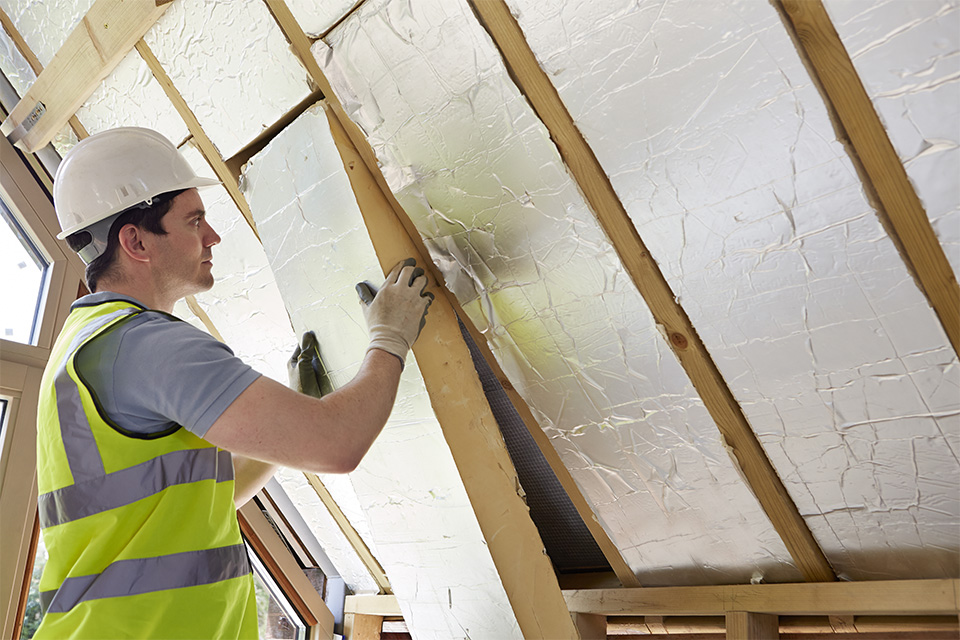
Quiz: Are you an insulation expert?
Test your insulation knowledge
Blown-in or batt and blanket? Spray foam or rigid board? See how much you
know about insulation.
Good insulation is the difference between having a drafty or a comfy home. Limiting the heat transfer between the inside and outside is key to increasing home comfort and cutting energy costs. How much do you know about insulation? Put your knowledge to the test.
1. What does R-value measure?
a. The thickness of the insulation and how effectively it limits heat
transfer
b. The price per square footage of insulation
c. How much heat insulation can absorb
d. How long the insulation can last in your home
a. The thickness of the material and how effectively it limits heat transfer
The R-value tells you how effective the insulation is. The higher the R-value, the better the resistance to heat loss (and the better the savings, too).
2. Typically, what’s the best place to start with new insulation in your home?
a. Garage
b. Crawlspace
c. Exterior walls
d. Attic
d. Attic
In a country as cold (and hot) as Canada, heating and cooling typically take up more than half of the energy used in an average home. In the winter, a properly insulated attic keeps hot air in. And in the summer? It keeps cool air in. That’s why starting with the attic is so important.
3. What are the benefits of insulation?
a. Reduce outside noise
b. Better control of humidity levels
c. Less insects, dust and pollen
d. All of the above
d. All of the above
The benefits add up — whether the temperature outside is hot or cold, proper insulation will help you save energy and keep your home cozy throughout the year.
4. What are some other useful methods to reduce energy costs?
a. Caulking
b. Weatherproofing
c. Vapour barrier
d. All of the above
d. All of the above
Insulation works best with other energy-saving measures. If you’re dealing with air leaks, then you may need to use caulking or weatherstripping in some areas. If moisture is a concern, then you may need to install a vapour barrier. All of these measures are important for ensuring a comfortable, energy-efficient home.
5. True or false: Proper insulation keeps your home cooler in the summer and warmer in the winter.
a. True
b. False
a. True
With more energy savings and extra comfort, a newly insulated home can feel like a brand new one.



